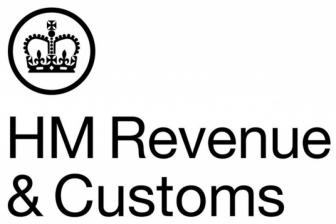Finola Owens appealed discovery assessments made under section 29 Taxes Management Act 1970 (TMA 1970) for £24,423.16 in unpaid tax covering five tax years from 2016-17 to 2020-21.
At the First Tier Tribunal (FTT), Owens also appealed five penalty notices for £4,008.54, charged under Schedule 41 of the Finance Act 2008 (FA 2008) for the same period.
The initial HMRC assessments related to undeclared rental income and were sent on 12 December 2022.
At the time, Owens’ tax agent and representative, Jon Vyse, owner of Pearl Lily & Co Accountants, contacted HMRC to present a notice of liability for the 2017 tax year.
But he asked for the late penalty notice to be removed: “We believe our client has a reasonable excuse in that it has taken our client some time to self-assess whether any tax is due and the estimated tax at risk is low. We therefore ask that a late notice penalty not be issued”.
HMRC received a similar letter on 16 January 2019 to which HMRC replied, asking for the source of Owen’s income, although, this was never responded to. Similar letters were again written by Vyse in 2020 and 2021.
Information notices about Owens’ source of income were sent repeatedly by HMRC with no reply until 16 February 2022. This explained the reason for income from property rental not being declared was HMRC’s fault because it had not issued notices to file tax, claiming Owens had sent notifications to chargeability to tax.
Eventually mortgage statements were supplied to HMRC on 28 February 2022, although these lacked all of the relevant information HMRC requested. By August 2022 the information was supplied in full.
Owens appealed on 12 grounds against the notices and penalties. Firstly, she cited s34 TMA 1970, stating the time limit of four years had passed. Secondly, the appellant claimed to have notified HMRC of the tax liability for all years in question, nullifying the penalties.
She also said that the penalties for failure to notify should be invalid as s70 does not specify a ‘want of form’ and referenced TMA 1970, stating: “There is no compulsion under TMA70 to make a voluntary return under section 12D”.
It was claimed that HMRC had failed to notify the appellant as no ‘notice to file’ was issued under s8 of TMA 1970. This was rejected.
Tribunal judge Alastair J Rankin MBE said: “The wording used by the agent in his six letters to HMRC falls far short of the ordinary meaning of s7 TMA 1970.
“Upon receipt of the letters dated 5 February 2018 and 16 January 2019, HMRC were given no information as to what sort of tax the appellant was liable for, no indication of the amount and no information concerning the source of the taxable income.”
He also did not believe the tax agent that they did not ask for the full amount earned at the first meeting, as this is ‘the first principle of an accountant’.
Judge Rankin said: “The tribunal is unable to find any facts that would justify granting any reductions due to special circumstances.”
The tribunal found the five discovery assessments and five penalty charges were valid and the appeal was dismissed.



Comments are closed.